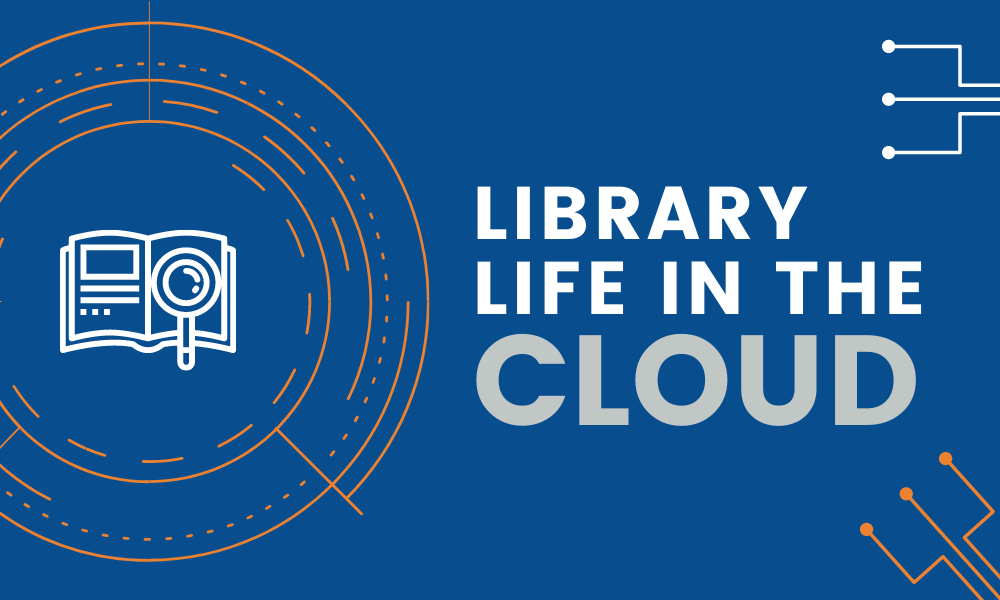We complain about temperatures that are either too frigid or too toasty, but for NOAA (National Oceanic and Atmospheric Administration) climatologists, temperatures are among the data points to analyze and capture in various reports, which often involve the contributions of librarians.
One of the most notable reports is the BAMS State of the Climate Report and one of those librarians happens to be LAC Federal employee Mara Sprain, who is assigned to NOAA.
BAMS is the Bulletin of the American Meteorological Society and the Climate Report is an annual supplement to this journal. The report was started by NOAA and turned over later to the Society for peer review and publishing. While spearheaded by American organizations, the report is a work of global collaboration, incorporating the contributions of hundreds of scientists from over 50 nations and every continent, including Antarctica.
March is when work begins in earnest for LAC Federal employee Mara Sprain and the editors responsible for this important publication.
Technical Editor, BAMS State of the Climate Report
As a librarian working at NOAA, one of Mara’s responsibilities is to serve as Technical Editor for the report, which is published in July. From February through May, much of her time will be spent on this project. As Technical Editor, Mara works with two executive editors and more than a dozen lead editors, reading and reviewing all content for grammar, usage, accuracy and other fine points.
While the report is published in English, Mara must standardize contributions from scientists who speak English as a second language, as well as convert British English into American English, changing ‘whilst’ to ‘while’ and removing the ‘u’ from every instance of ‘colour’.
Katy Vincent, Communications Coordinator at NOAA’s National Climatic Data Center at NOAA says,
“The BAMS State of the Climate report is one of NCDC’s premier yearly science reports on our global climate. Mara is instrumental in the editing and citation work related to that report. The editors always have great things to say about her work.”
To put Mara’s contribution in perspective, the 2012 report is 240 pages long. The references – 663 of them for 2012 – require great attention to detail and understanding of citation standards. Following is a typical entry:
Wang, J., L. Zhang, A. Dai, T. Van Hove, and J. Van Baelen, 2007:
A near-global, 8-year, 2-hourly atmospheric precipitable
water dataset from ground-based GPS measurements. J.
Geophys. Res., 112, D11107, doi:10.1029/2006JD007529.
According to Mara,
“When data start coming in, I find myself looking forward to working on the report, though if you ask me how I feel in May, some of that initial enthusiasm may have worn off a bit!”
While the BAMS Client Report is written for scientists and other professionals in climatology and meteorology, the data are often cited in the news. Every report dating back to 1991 is publicly available.
Librarian, NOAA’s National Climatic Data Center
The Climate Report is ancillary to Mara’s day job, which is that of Librarian for NOAA’s National Climatic Data Center (NCDC) in Asheville, North Carolina. She manages typical library responsibilities, providing reference assistance and managing interlibrary loans of NCDC physical publications as well as digital content for OCLC WorldCat. In addition, NCDC serves an important role in the legal and insurance worlds. Any legal action or insurance claim that involves weather as a factor usually requires a certified NCDC report as supporting evidence.
While Mara is the librarian for this federal government agency, her employer is LAC Federal. Yet Mara fits seamlessly into this organization that is part government, part science and technology, treating everyone as well as she can, regardless of their role or where they sit on an org chart.
Changing roles and contributions of librarians
As the library evolves, the librarian must change as well. Fortunately, the training and skills of experienced librarians meet the needs of a variety of interesting information jobs and career paths.
Mara has claimed a stake in the annals of global climate change. There on the title page, below the Editors and Chapter Editors, you will find her – Mara Sprain, Technical Editor – acknowledging her contribution for generations to come.
Meanwhile, the NCDC library has become the go-to resource for national climate data in the U.S., making Mara the go-to person for help finding specific climate information. Just another day as a librarian contributing to climate research.
More on Mara’s background:
Education: Master of Arts, Library Science, University of Wisconsin; Bachelor of Arts (Chemistry and Spanish), University of Minnesota.
Prior Library Experience: University of Wisconsin, University of California, University of Colorado, National Renewable Energy Laboratory.



